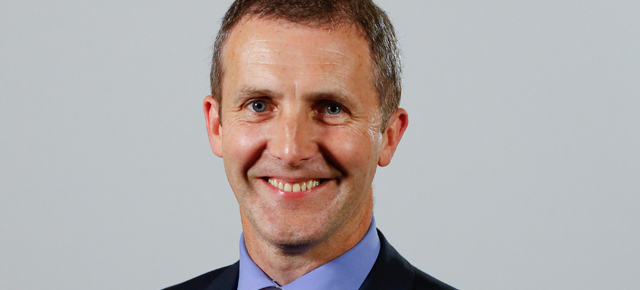Transport secretary sets out plans to achieve modal shift

The Scottish Government’s commitment to cut car use by a fifth over the next decade was identified as being among a set of “bold policy proposals” to decarbonise transport by Scotland’s transport secretary, Michael Matheson. The target was announced last December.
Addressing a Transport Focus board meeting on a live stream last month, Matheson explained how Scotland was developing a robust plan for reaching its national target of net zero emissions by 2045. He told Transport Focus board members and other viewers: “Not least in terms of bold policy proposals is our commitment to reducing car kilometres by 20% by 2030, which I believe is not just a first for the UK but maybe a world first in terms of a target that we have set to achieve over such a short period of time.”
Matheson said he was “very keen” on implementing bus priority measures, and pointed out that this enthusiasm is backed up by £500m of Scottish Government funding.
Overall the core aim … is to make sure that we start to address and reduce the level of unnecessary travel which is simply unsustainable
Citing various different strategies and plans, he said: “Overall the core aim at the very heart of our STPR2 process [Strategic Transport Projects Review 2], NTS [National Transport Strategy] and also the climate change plan update is to make sure that we start to address and reduce the level of unnecessary travel which is simply unsustainable.”
Matheson said that a “sustainable transport hierarchy” was at “the very core of our capital spending commitments”.
He added: “Another key issue that I’m very keen to make sure that we see being given greater priority is the way in which transport can play an important role in tackling inequality.”
Matheson was asked where people would be persuaded out of their cars and back onto trains and buses. “There’s a significant level of anxiety around people going back onto using public transport,” he said. “What we have sought to try and do through the approach that we have been taking in Scotland is not to vilify public transport. Language used by some politicians that at times has almost vilified public transport as almost being a problem, or as creating part of the problem, and that it is unsafe. So we have sought to try and make sure that we don’t use language that gives that impression.”
He pledged to work with public transport operators as they seek to rebuild their passenger volumes.
Addressing the same meeting, Julianne Robertson, chair of campaign group Transform Scotland, said: “There’s perhaps a chance for the government here to say a bit more in terms of addressing the imbalance on spending, high carbon infrastructure versus low carbon infrastructure to stop spending on new roads and allowing the car to be king in the way that it currently is, or could be perceived to be.
This article appears inside the latest issue of Passenger Transport.
DON’T MISS OUT – GET YOUR COPY! – click here to subscribe!







